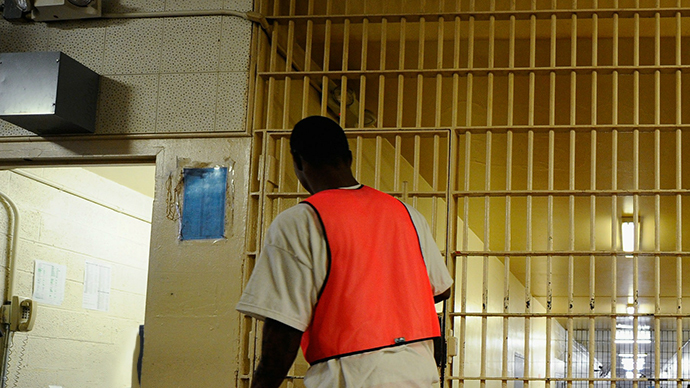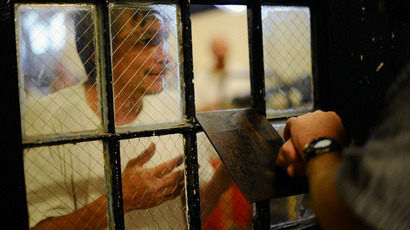Mentally ill inmates 'warehoused' in Colorado solitary confinement

Prison inmates struggling with severe mental illness make up more than half of those held in solitary confinement across Colorado prisons. Prolonged isolation is known to worsen disorders, yet has become a preferred punishment methods.
On any day, chosen at random in 2012, the Colorado Department of Corrections (CDOC) housed between 537 and 686 mentally ill inmates in solitary confinement - with an average stay of 16 months, according to a new report from the American Civil Liberties Union (ACLU).
A typical prisoner in solitary confinement is held for 23 hours a day in a small, often windowless cell without access to a phone. They are usually given one hour of outdoor time per day, or allowed access to an exercise room with a small amount of equipment. The conditions frequently lead inmates, even ones who were otherwise healthy before isolation, to states of psychosis, where they “bang their heads against the wall in an effort to drown out the voices in their heads,” the ACLU said.
“Warehousing mentally ill prisoners in solitary confinement is not only costly, cruel, and unlawful, its puts the public at serious risk,” wrote ACLU attorney Rebecca Wallace, who drafted the report. “When mental illness goes untreated, or is made worse by solitary confinement, it can lead to criminal or antisocial actions once a prisoner is released, leaving the public to suffer the consequences.”
Medical physicians and human rights advocates have consistently classified solitary confinement as inhumane, as a form of torture, and cruel and unusual punishment - the last of which is prohibited by the US Constitution.
Courts have agreed, with a California judge refusing to dismiss a suit brought earlier this year by inmates in solitary confinement at the state’s notorious Pelican Bay supermax facility. The lawsuit, which California officials sought to have thrown out, revealed that as of 2011, over 500 inmates had been isolated in security housing units (SHU), administrative jargon for isolation, for over ten years. Seventy-eight others were in the SHU – pronounced “shoe” behind bars – for two decades.
The ACLU report determined that prisoners with mental deficiencies are more likely to be sent to the SHU because they are less likely or simply unable to follow the rules. Once there, they “appear to have no road out of severely restrictive confinement.”
With many states slashing budgets for mental hospitals and treatment funding, prisons have increasingly become inundated with prisoners unfit for confined life. Just a few days, though, of isolation can introduce an inmate to hallucinations, difficulty thinking and other lasting effects.
“The restriction of environmental stimulation and social isolation associated with confinement in solitary are strikingly toxic to mental functioning, producing a stuporous condition associated with perceptual and cognitive impairment and affective disturbances,” wrote former Harvard Medical School Psychiatrist Stuart Grassian, as quoted by Think Progress. “As a consequence, the practice has been deemed torture, cruel and inhuman treatment, and a ‘living death.’”














